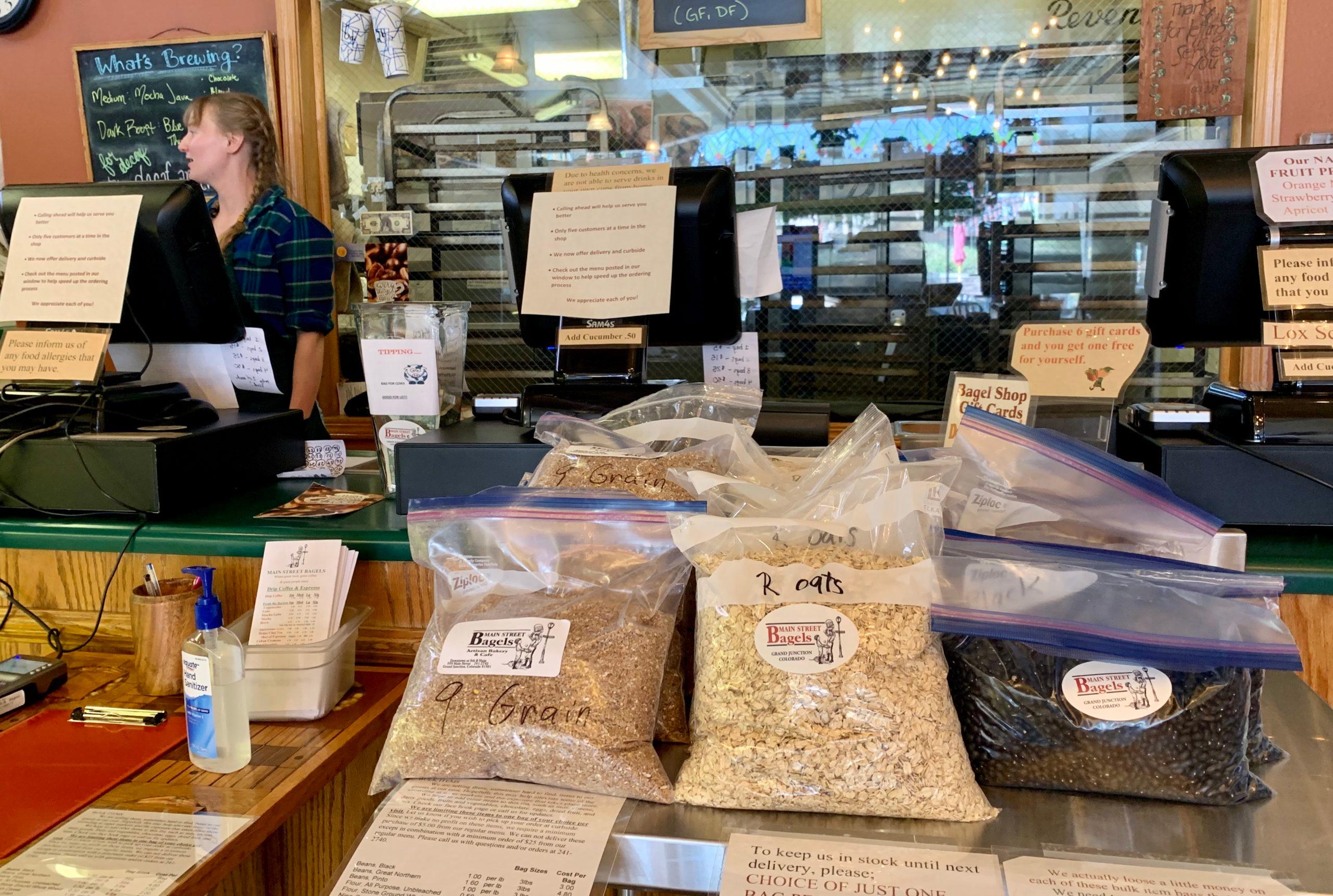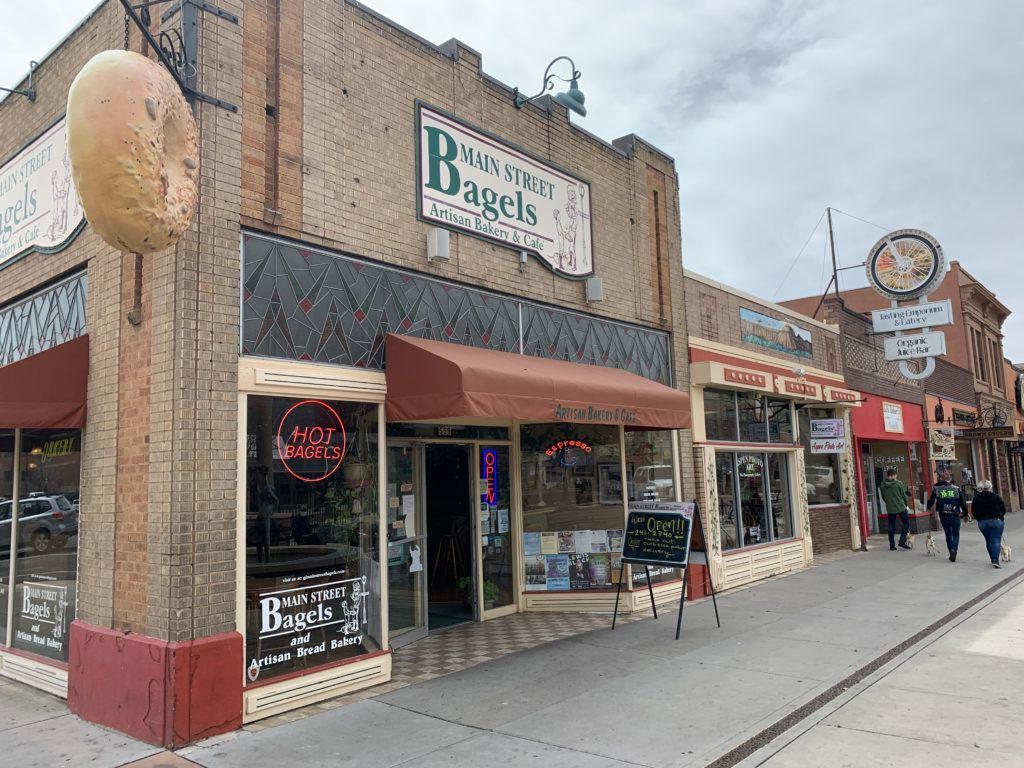
Not too long ago, a customer at Main Street Bagels in downtown Grand Junction asked owner Mark Smith to buy some of his flour. Smith, who has owned the shop for 25 years, had never had a request like it, but he’s never been in times like these, either. So he thought to himself: Why not?
Smith started buying larger quantities from his supplier and selling three-to-four-pound bags of it, at cost. He now gets about twice as much all-purpose flour as usual, and the majority goes to customers, not bagels. Other popular items include whole wheat flour and yeast. Because he requires people to buy a regular menu item as well, selling these pantry staples helps keep the light on. It also keeps his employees’ spirits up, as the economic effects of statewide restrictions sink in.
“It’s sad to look out around the downtown, and there’s hardly any cars here and people on the sidewalk and makes us feel better to see people coming in,” he said.
The Colorado Department of Health and Environment recently removed restrictions on restaurants selling bulk items to the public. Eateries across the county and country have become a kind of safety net beyond grocery stores.

Kaelin Roach, who lives in Grand Junction, calls the move “incredible.”
She’s been discouraged by her local food markets and their picked-over shelves. She often can’t find the ingredients she needs to make things from scratch for her daughter with a special diet. For her, it’s a relief knowing that if she runs out of something, she has options.
For example,her husband recently picked up the ingredients for bread, plus tomatoes and beans, from Dos Hombres, a Mexican restaurant in nearby Clifton.
“And it’s much easier than fighting the crowds at the grocery store,” she said.
Dos Hombres’ decision to sell basics made an impact on Roach. Even once things get back to normal, she plans to go back and eat there.
“Our birthday tradition is we go out for tacos,” she said. “So this year we know exactly where we’re going out for tacos”.
Providing necessities is also giving customers a way to reconnect with a little bit of normal life. In Denver, the owner of Session Coffee isn’t in the business of brewing coffee right now. But he’s still delivering beans to customers like Randy Runyon, who is now at home all day with his wife and young son.
“Being able to, you know, just see him, even if it’s just him dropping some coffee off on my front porch, you know, it’s great,” Runyon said.
For Runyon, a self-described extrovert, that brief moment is a tiny recharge, a connection to his life before the pandemic. He also feels it when he pays for his coffee beans with Venmo and sees all the grateful comments from fellow customers. In pre-COVID-19 times, Runyon would never put a comment for all to see on Venmo, out of a concern for his privacy.
But now, he said, “I want people to know that, hey, you can get your coffee.” It’s a way for him to show his support, in an uncertain time.









